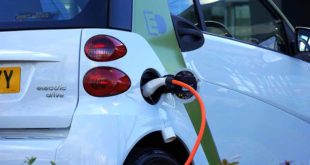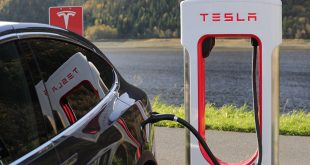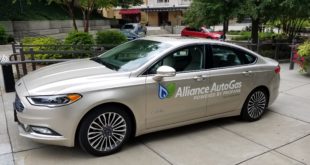What’s not to like about electric cars? Skip the gas station altogether and just recharge your car in the garage every night for a fraction of the cost. There are three drawbacks of electric cars that have gotten a lot of attention as electric cars have hit the American market. Problem 1 is the high cost of batteries, which makes electric cars pricier than their traditional counterparts. Federal and state governments have stepped in with subsidies intended to offset the price difference, at least for a while. Problem 2 is limited range.
Range is still a major sticking point. When you drive away from your garage and its charging station, you can drive about 100 miles before recharging. That’s fine for the way most people use their cars on most days. You’re going to have a problem, though, if you ever need to go further than 100 miles at a stretch. Electric charging stations are not as plentiful as gas stations, and even if they were, you can’t recharge your battery in just a few minutes.
Now let’s add another wrinkle. Problem 3 is that electric car batteries don’t fare so well in extreme temperatures. The batteries can lose up to half of their effectiveness in very cold or very hot weather. If temperatures are freezing, you may only have a range of 40 or 50 miles.
So are electric cars worthless if you live someplace where it snows all winter or experiences blistering heat for five months out of the year? What are the possible workarounds?
Make sure you have enough power to get where you’re going. Short and even medium daily commute distances are suitable for electric cars. If you’re lucky enough to have a charging station at your place of employment, your range is effectively doubled.
Move to a sunny locale. Drive your Chevrolet Volt in San Antonio or your Nissan Leaf in LA. Some places are just more suited to electric cars than others. There are other benefits of living in the sun belt, such as beach days instead of snow days.
Have a backup means of transportation for cold days. Can you carpool on snowy days, or take public transportation? Is telecommuting an option? If you don’t absolutely need your car every day, your flexibility could pay off in terms of fuel savings.
Go part electric with a hybrid instead. A hybrid vehicle has a gasoline tank and can use gas, but it uses electricity whenever possible. Hybrids are able to monitor conditions a select the appropriate power source at any given time. It switches automatically so that you are using the best option whether you are driving at high sustained speeds or tootling around town with lots of stops. The other benefit of having both is that there is a backup if the battery should run out of power.
The bottom line is that electric cars aren’t yet at a point where they’re as practical as traditional gas powered vehicles. Technological advances in battery design may help. An increase in the storage capacity could increase the range of electric vehicles. Protection from the elements – temperature especially – could make them more reliable. Unfortunately technological advances will require research and development, which means money. And since engineers have been stuck at this particular roadblock for a while, I suspect that it will take a lot of money to clear it. That, of course, translates into higher car prices. This brings us right back to problem 1.
 Alternative Energy HQ solar power for homes, wind energy, and bio fuel issues
Alternative Energy HQ solar power for homes, wind energy, and bio fuel issues







